Caution and Hope for TCKs who Attend Local Schools
Tanya crossman
When TCK Training released our white paper, Caution and Hope: The Prevalence of Adverse Childhood Experiences in Globally Mobile Third Culture Kids, we knew we were only beginning to scratch the surface of what we could learn from the data we had collected from 1,904 individuals who completed our 2021 survey on developmental trauma in globally mobile Third Culture Kids. This is part of a series of blog posts that looks a little deeper at certain sub-groups represented in the data.
Caution and Hope for TCKs who Attend Local Schools
In our survey of nearly 2,000 people who grew up internationally, we discovered that 25% of TCKs who grew up attending local school were at high risk of adverse outcomes in adulthood. In this blog post, we go through the data from our white paper "Caution and Hope" that applies specifically to TCKs at local schools: things that are hard to hear, along with what we can do to cultivate long term thriving for TCKs in the local school environment.
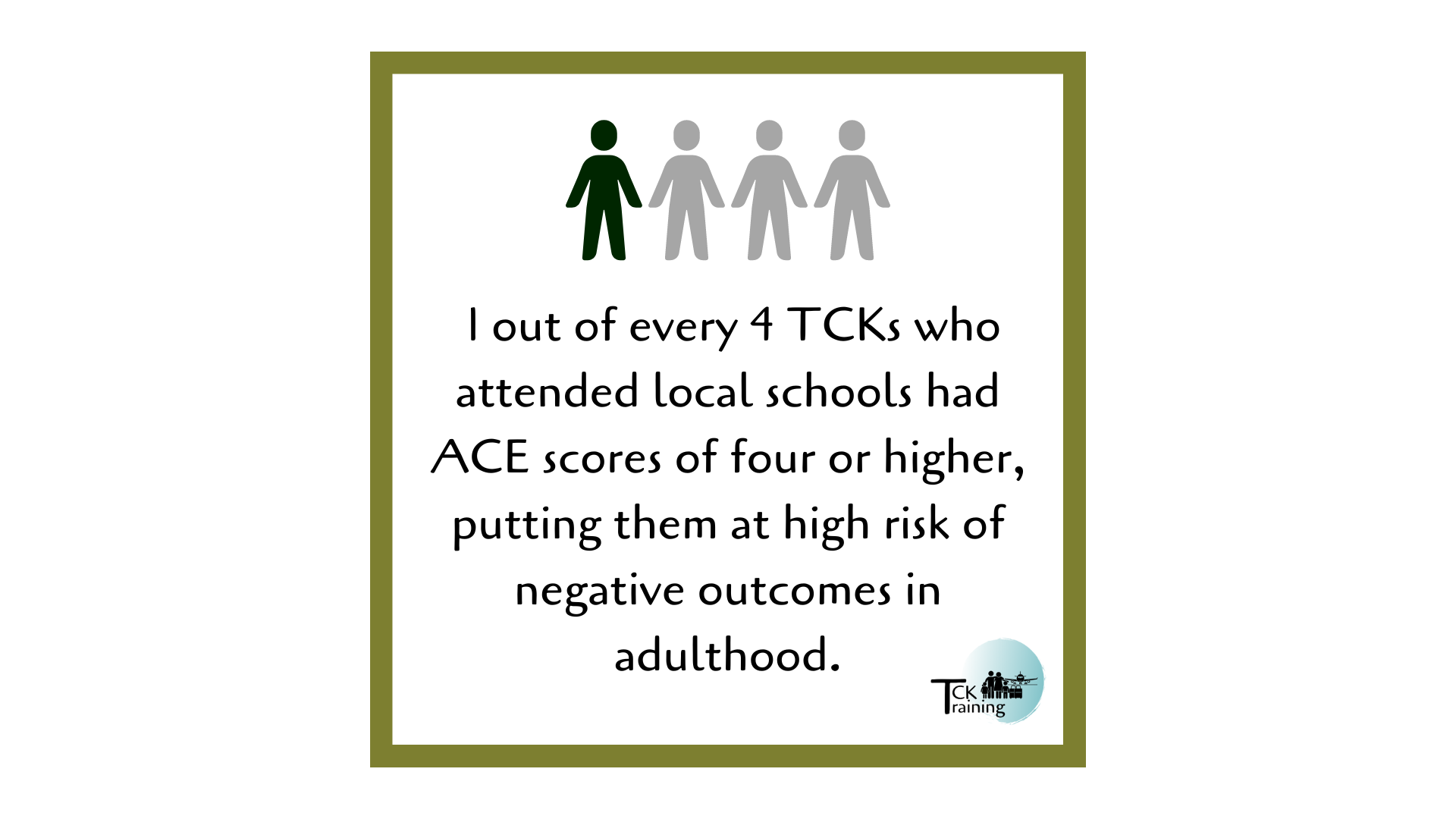
Education
One of the demographics we used to sort the results from our 2021 survey of Adverse Childhood Experiences among TCKs was core educational experience. We asked respondents to list all types of schooling they received, as many TCKs move between schools – and school types – during childhood and adolescence. We also asked them to choose one category which represented the core experience they identified with. One of these categories was ‘local school’ which, for the purposes of this survey, we identified defined as:
One of the demographics we used to sort the results from our 2021 survey of Adverse Childhood Experiences among TCKs was core educational experience. We asked respondents to list all types of schooling they received, as many TCKs move between schools – and school types – during childhood and adolescence. We also asked them to choose one category which represented the core experience they identified with. One of these categories was ‘local school’ which, for the purposes of this survey, we identified defined as:
Any national curriculum school in its own country, whether public or private (accredited by the country in which it exists).
Caution and Hope: The Prevalence of Adverse Childhood Experiences in Globally Mobile Third Culture Kids
22% identified local school as their core experience of education. When missionary kids were removed from the sample, the percentage of TCKs who attended local schools rose to 34%.
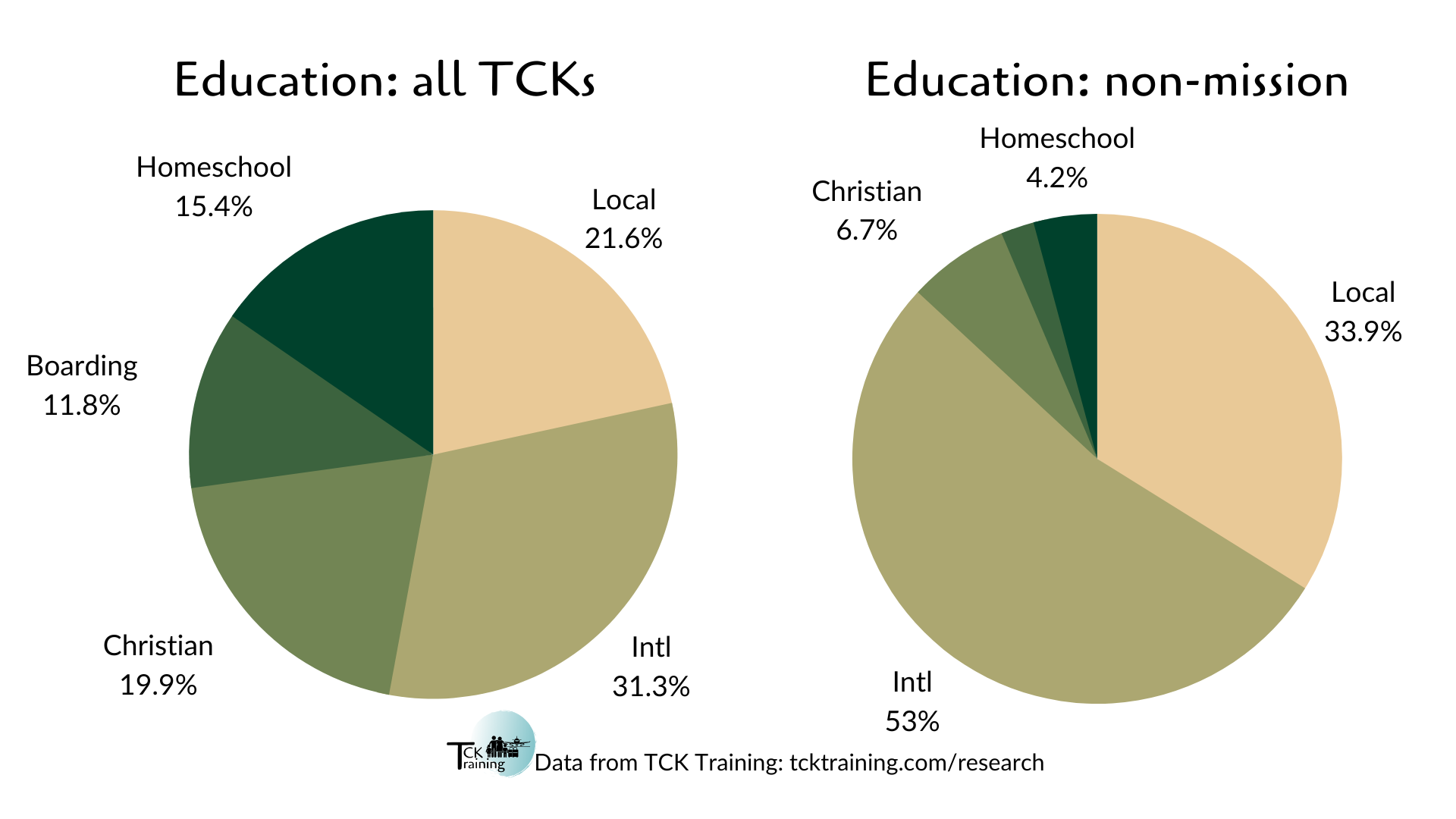
Of those who identified local school as their core educational experience, one third were military kids, one third missionary kids, and most of the remaining third from international business families.
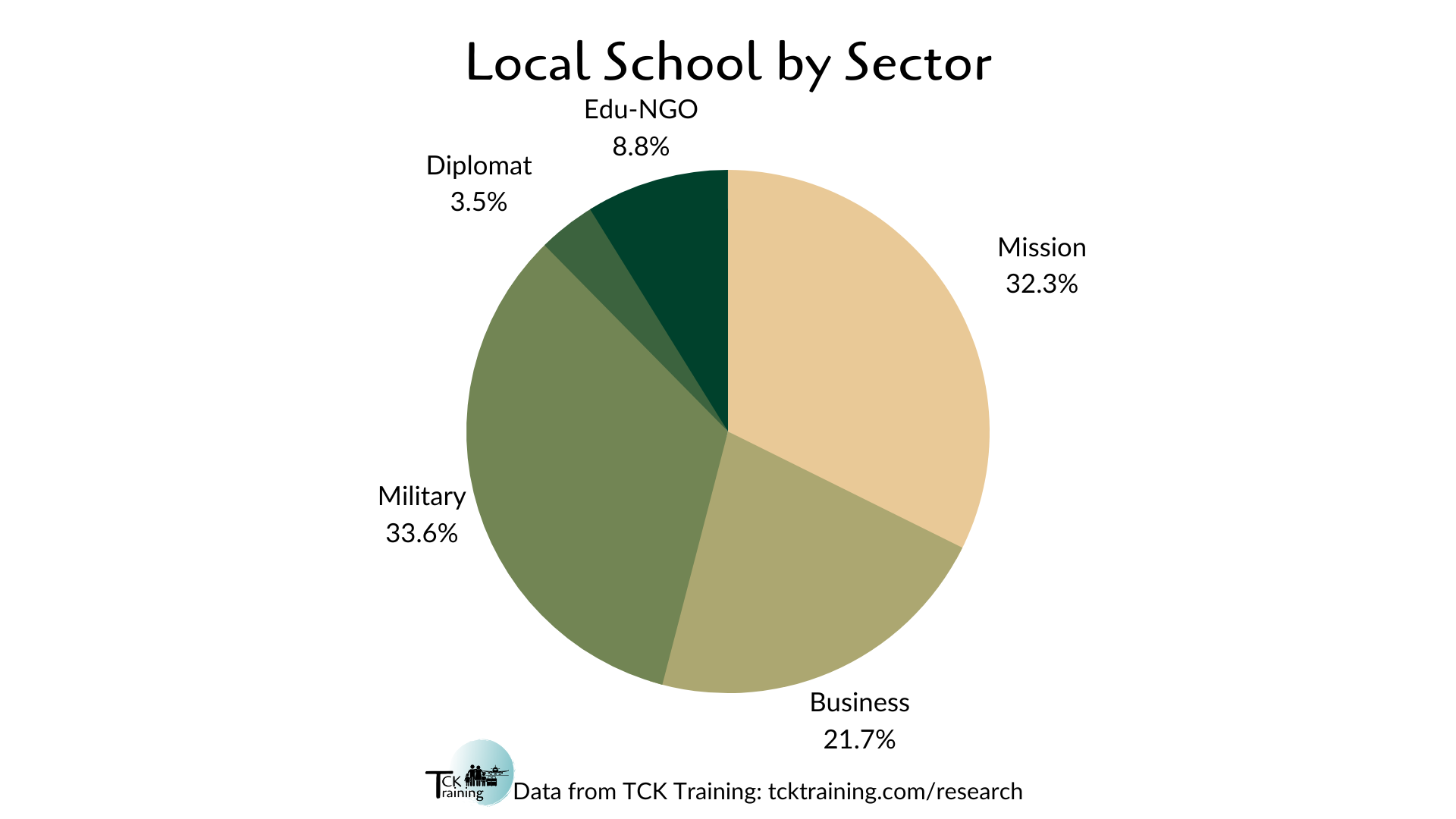
Mobility
The mobility patterns of TCKs who primarily attended local schools were fairly similar to the mobility patterns of TCKs overall. 15% of TCKs attending local schools lived in four or more countries before age 18, and 16% moved more than 10 times before age 18.
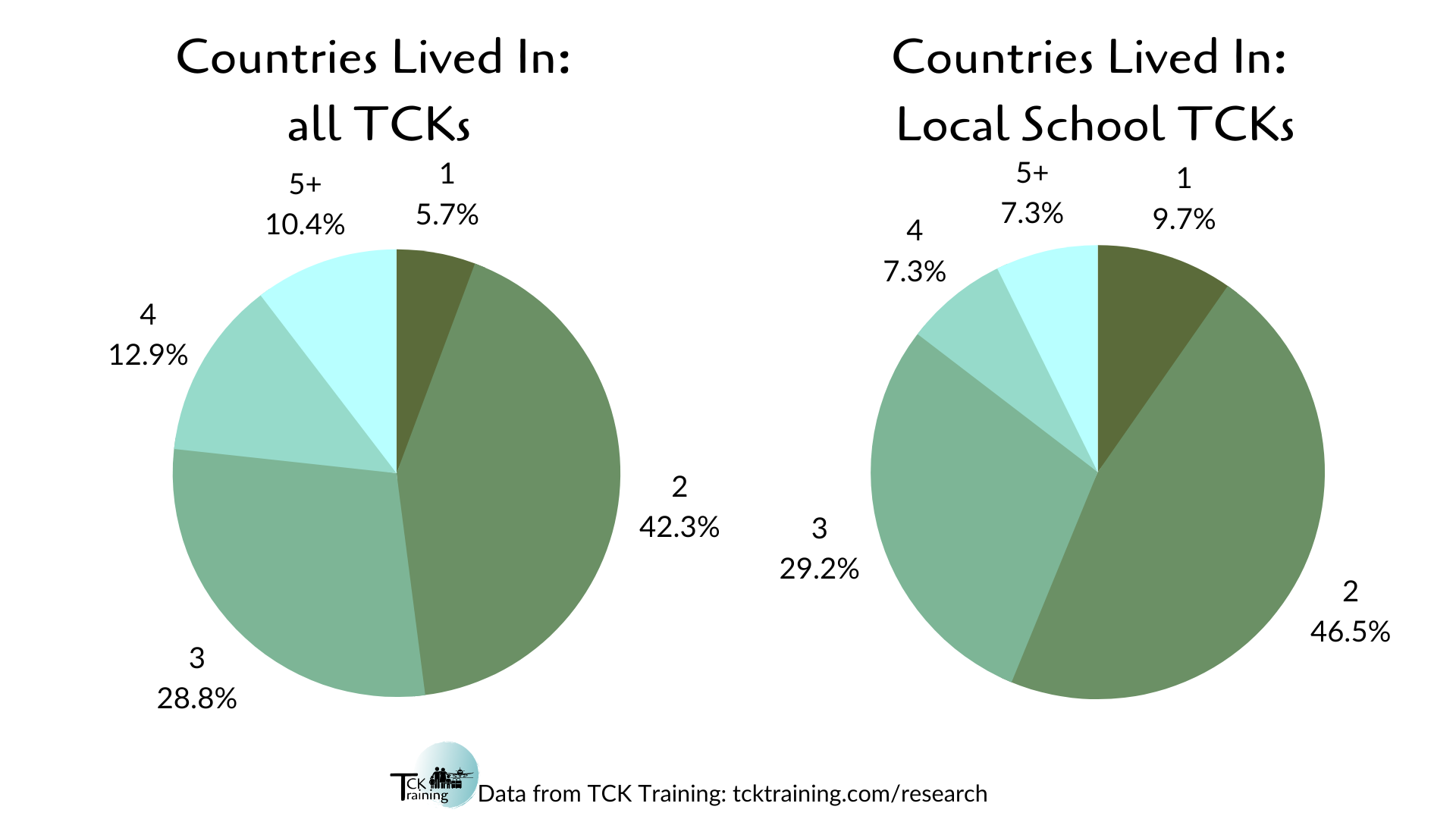
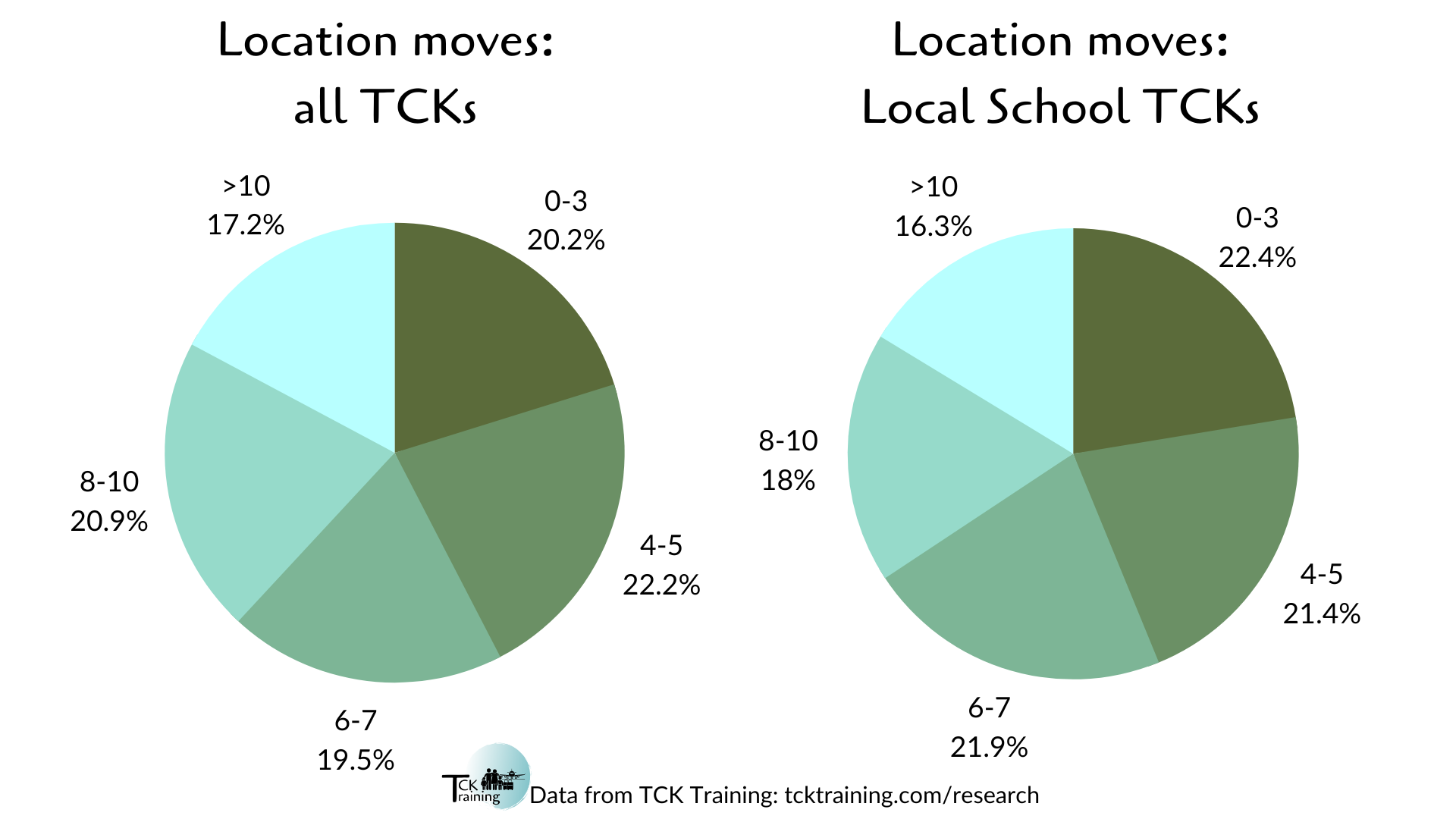
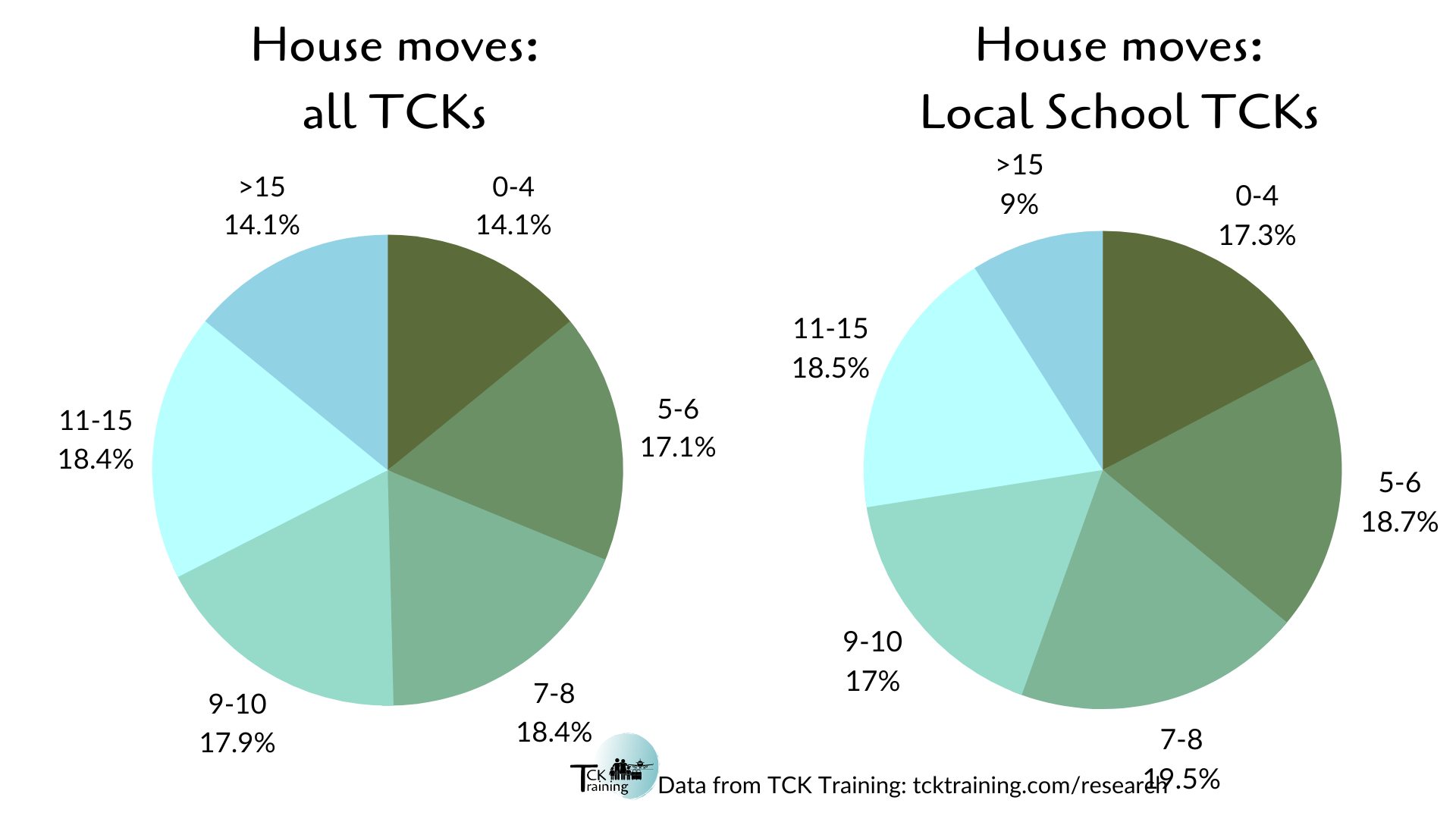
Adverse Childhood Experiences
Adverse Childhood Experiences (ACEs) have been researched for decades, establishing links between high ACE scores and negative health outcomes in adulthood. The number we pay most attention to is the percentage of a group with 4 or more Adverse Childhood Experiences (ACEs). In the largest study on ACEs, 12.5% of Americans had a score of 4+. In our study, 21% of TCKs generally, and 25% of local school students specifically, had an ACE score of 4+. This means one quarter of TCKs who primarily attended local schools reported enough adverse childhood experiences to be considered at high risk for depression, suicide, addiction, and other negative outcomes.
Adverse Childhood Experiences (ACEs) have been researched for decades, establishing links between high ACE scores and negative health outcomes in adulthood. The number we pay most attention to is the percentage of a group with 4 or more Adverse Childhood Experiences (ACEs). In the largest study on ACEs, 12.5% of Americans had a score of 4+. In our study, 21% of TCKs generally, and 25% of local school students specifically, had an ACE score of 4+. This means one quarter of TCKs who primarily attended local schools reported enough adverse childhood experiences to be considered at high risk for depression, suicide, addiction, and other negative outcomes.
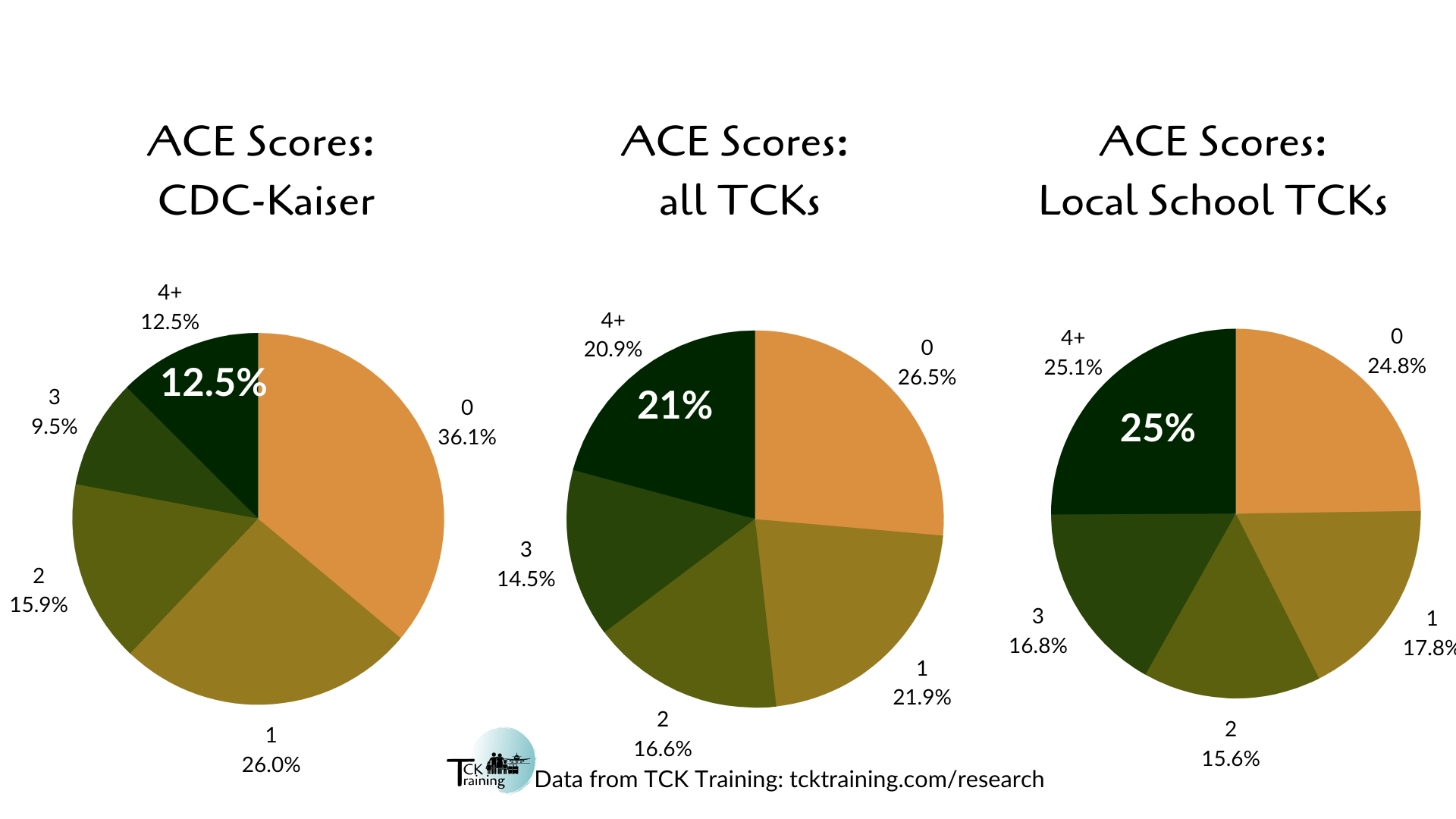
PCEs and Preventive Care
We titled our white paper “Caution and Hope” because although it can be hard to face the reality that so many TCKs are experiencing extreme mobility, unresolved grief, and Adverse Childhood Experiences, there are proven practical ways to support them.
A child who goes through many Adverse Childhood Experiences (ACEs) can still thrive in adulthood if their childhood is also filled with Positive Childhood Experiences (PCEs). There are seven types of PCEs. Three of the seven are based in the home; four of the seven are based in experiences of community outside the home.
We titled our white paper “Caution and Hope” because although it can be hard to face the reality that so many TCKs are experiencing extreme mobility, unresolved grief, and Adverse Childhood Experiences, there are proven practical ways to support them.
A child who goes through many Adverse Childhood Experiences (ACEs) can still thrive in adulthood if their childhood is also filled with Positive Childhood Experiences (PCEs). There are seven types of PCEs. Three of the seven are based in the home; four of the seven are based in experiences of community outside the home.
Bethell and her coworkers found that having higher counts of PCEs was associated with 72% lower odds of having depression or poor mental health overall as an adult; that those with higher levels of positive experiences were over 3.5 times more likely to have healthy social and emotional support as an adult; and that accumulation of the seven PCEs shifted the outcome positively in adulthood.
Caution and Hope:
The Prevalence of Adverse Childhood Experiences in Globally Mobile Third Culture Kids
There is also so much preventive care we can do to help children process the experiences of grief and loss that go along with transition and mobility. A key finding of “Caution and Hope” was that when extreme mobility is present, the rate of high-risk ACE scores rose from 1 in 5 TCKs to 1 in 3.
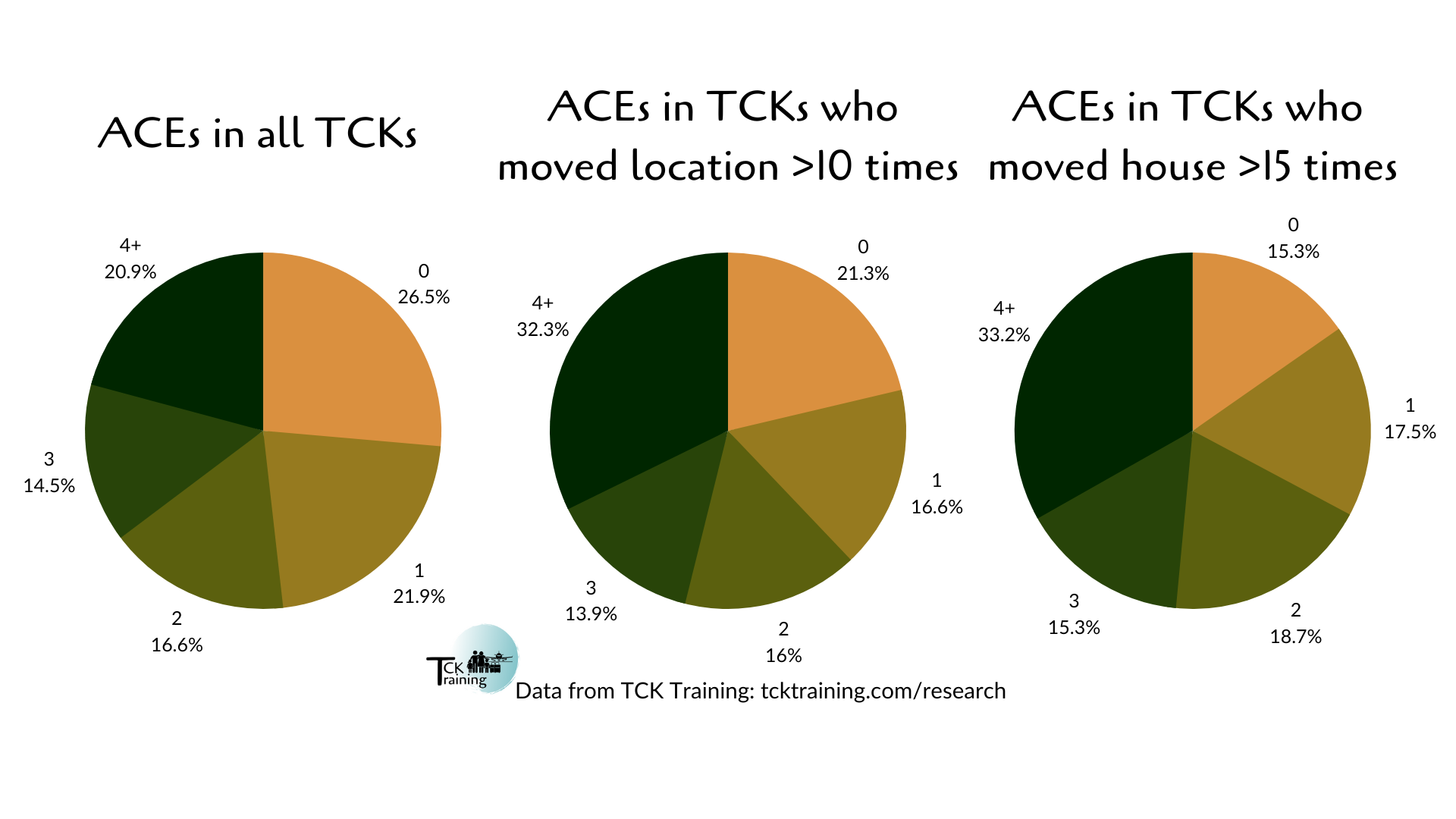
A big struggle for expatriate families with children attending local schools is a lack of community who understand the impact of mobility on children and family life. Some of those in mission and military communities may receive support through those avenues, but the remaining third of families in our survey are far less likely to have access to support. Business families receive little if any support from their sending organization, and little if any support from the local/national schools their children attend.
TCK Training is here to help. We have curricula, workshops (in-person and virtual), training (live and asynchronous), community groups, memberships, and everything else you need. You are not alone in the journey of raising a globally mobile family! Others have trod this path, and we now have the tools to help you and your children thrive.
TCK Training is here to help. We have curricula, workshops (in-person and virtual), training (live and asynchronous), community groups, memberships, and everything else you need. You are not alone in the journey of raising a globally mobile family! Others have trod this path, and we now have the tools to help you and your children thrive.
Empty space, drag to resize
About the Author
Tanya Crossman grew up in Australia and the US before moving to China at age 21; she has worked with TCKs for 20 years. She is the Director of Research and International Education at TCK Training.



